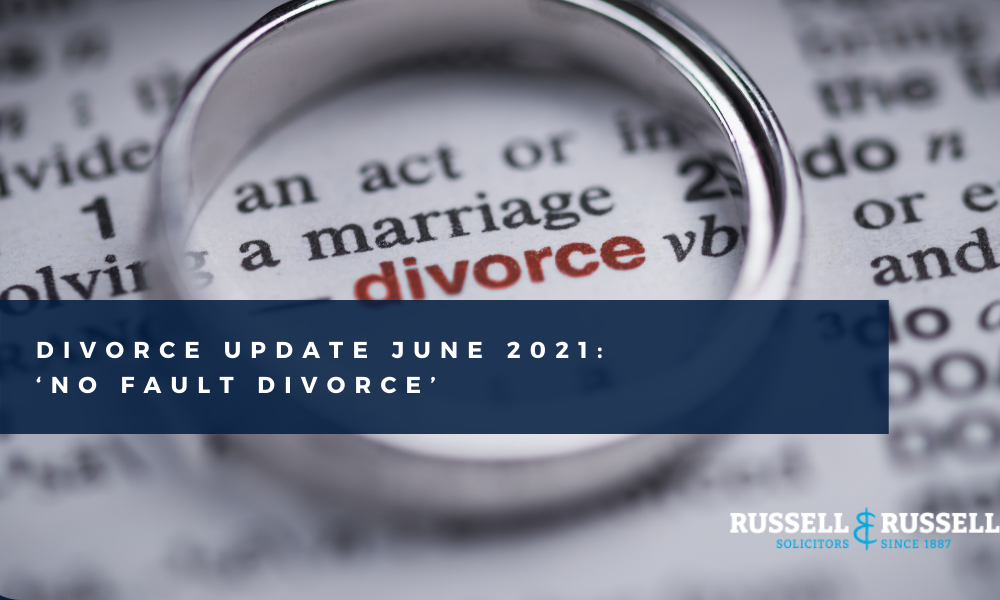10/06/2021

The breakdown of a relationship has undoubtable consequences for the parties, particularly where they are married. The process of ending a marriage and applying for a Divorce can be difficult and confusing at an already upsetting and distressing time.
There will be a further knock-on effect in terms of agreeing matters concerning the residence and contact time with the child(ren) and with regards to the financial aspect resulting from the breakdown of the marriage.
The current legislation which deals with Divorce had not been updated for a number of decades. It is currently still the case that, in order to apply for a Divorce, a party must prove to the Court that the marriage has broken down irretrievably. This requires that party to either prove that the other party is at fault or show that they have been living separately for at least two years.
However in 2020, after years of consultation, the Government finally passed the Divorce, Dissolution and Separation Act, which will allow parties to obtain a Divorce without the need for blame or waiting lengthy periods of time.
The 'no fault divorce' update will take away much of the hostility currently associated with obtaining a Divorce.
Until recently, it was anticipated that this new legislation would come into force in the Autumn of 2021. However, on the 7th June 2021, the Government announced that it would be put back to the 6th April 2022.
The delay comes as somewhat of a disappointment for practitioners and clients; however, it is hoped that this delay will ensure smooth implementation of the new legislation.
Key Changes:
- The facts are removed, meaning that applying for a Divorce does not either have to be blamed on the other party or come after a period of separation of at least two years.
- One or both parties can apply for a ‘Divorce Order’. If both parties make the application, both parties must see the process through to the end.
- There will be changes to the terminology:
- The Petitioner will become the Applicant (or Applicants)
- The Decree Nisi will become a Conditional Order.
- The Decree Absolute will become a Final Divorce Order.
- There will be a minimum period of at least 20 weeks that the Applicant/ Applicants must wait from the outset of the proceedings, before applying for a Conditional Order. The 6 week period will remain between the Conditional Order and the Final Divorce Order.
- The changes impacts Divorce, Dissolution (ending a Civil Partnership) and Judicial Separation.
If your marriage is at an end and you think that Divorce proceedings will become necessary, it is important that you obtain legal advice.
Our specialist family law team at Russell & Russell can help you by being the solicitors you can trust to offer all options for you to speedily and cost-effectively address the issue you are facing. We have experienced and accredited solicitors who can quickly assess the legal and other options available to you to achieve the desired outcome.
You can speak to our family law experts to discuss the most appropriate solution for you and your circumstances. Please Call 0800 103 2600 or make an online enquiry.
Please note that this article is meant as general guidance and not intended as legal or professional advice. Updates to the law may have changed since this article was published.

